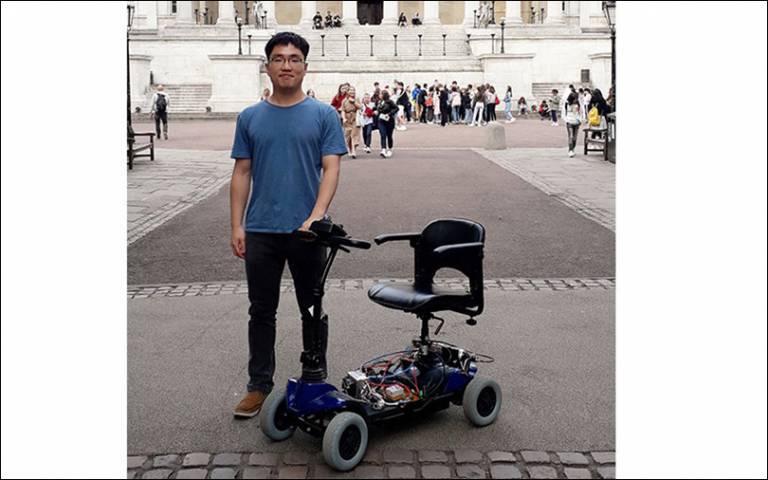UK’s first polymer electrolyte membrane (PEM) fuel cell/battery hybrid mobility scooter
15 August 2019

On the 15th August 2019, Jason Cho (Postdoctoral Researcher with Prof Marc-Olivier Coppens) and Lara Rasha (PhD student with Prof Dan Brett) successfully tested the UK’s first polymer electrolyte membrane (PEM) fuel cell/battery hybrid mobility scooter. The 250 W scooter uses 2 lead acid batteries as the main power source and a Horizon H-60 polymer electrolyte membrane (PEM) fuel cell as a range extender.
The team aims to leverage the technology and the electrochemical expertise of the CNIE and Electrochemical Innovation Lab (EIL), as well as the extensive range of manufacturing techniques available in the lab and the Institute of Making (UCL) including 3D printing, CNC machining and laser cutting to develop commercial vehicles in collaboration with companies.
The team would like to give special thanks to Albert Corredera (electronics technician in UCL Chemical Engineering) for his invaluable help and advice on circuitry design.
Why PEM fuel cell?
Range anxiety is a prevailing concern for mobility scooter and other assistive technology users. Most commercially available scooters still use lead-acid batteries which adds considerable weight and volume.
PEM fuel cells are a promising alternative source of energy conversion, due to their high efficiency and high power density. They use hydrogen and air for power generation, producing water as the only by-product. Contrary to batteries, fuel cells can operate continuously with a hydrogen supply. Hydrogen is typically stored in metal hydride canisters or pressurised tanks which can be refilled within a fraction of time it takes to recharge batteries.
 Close
Close

